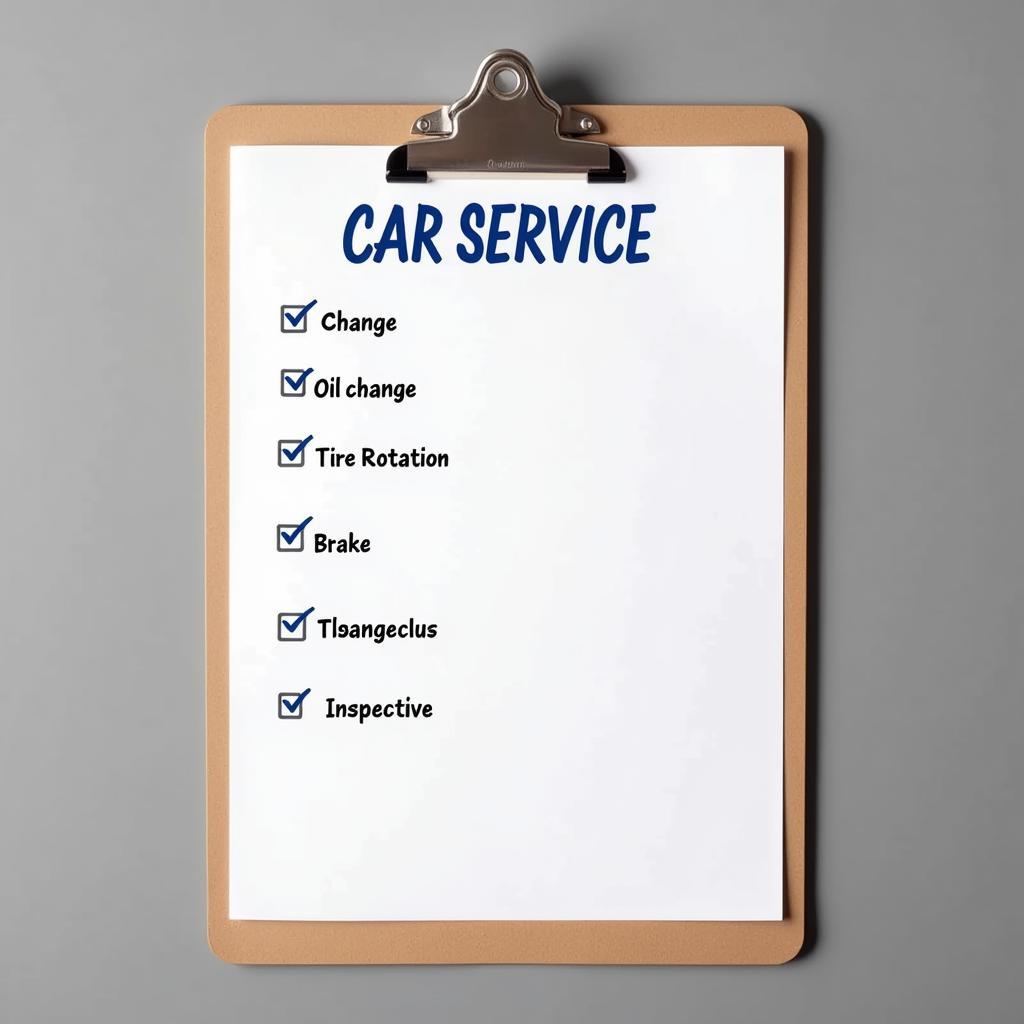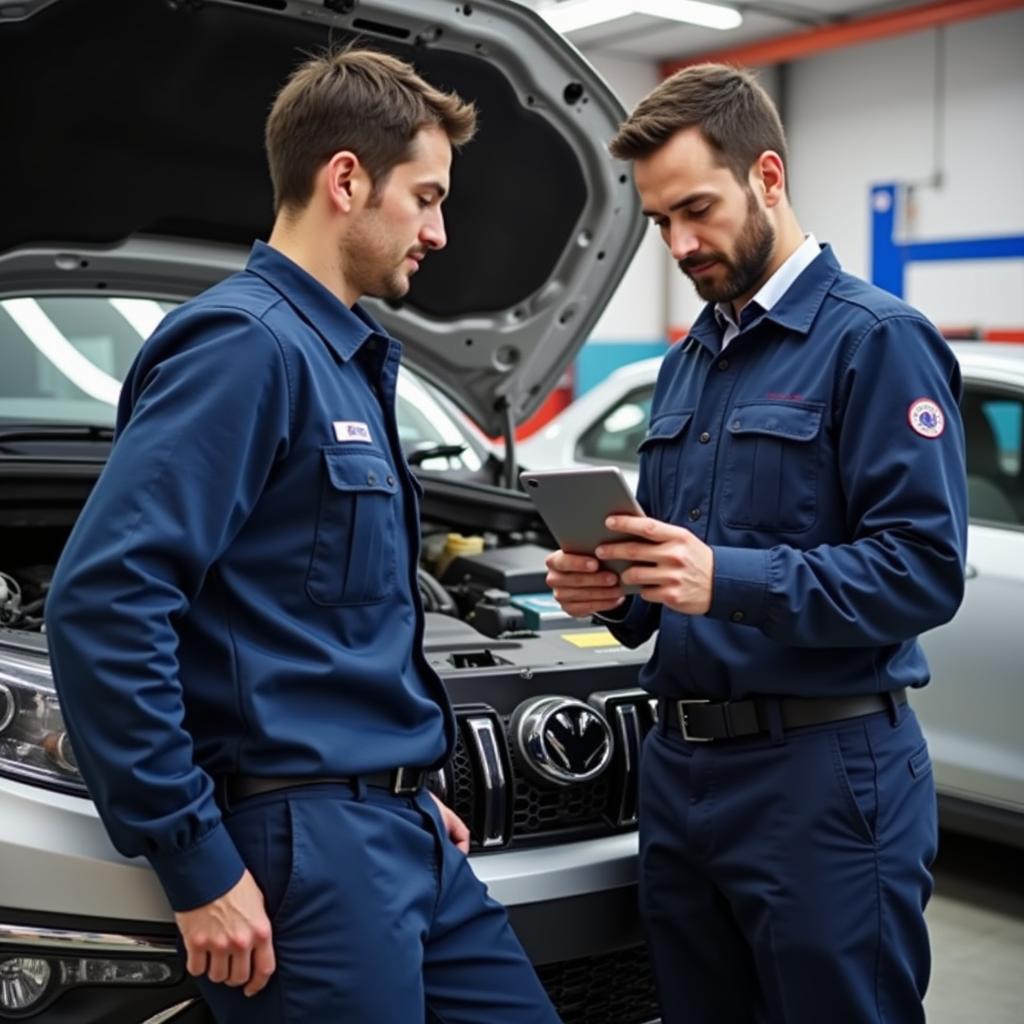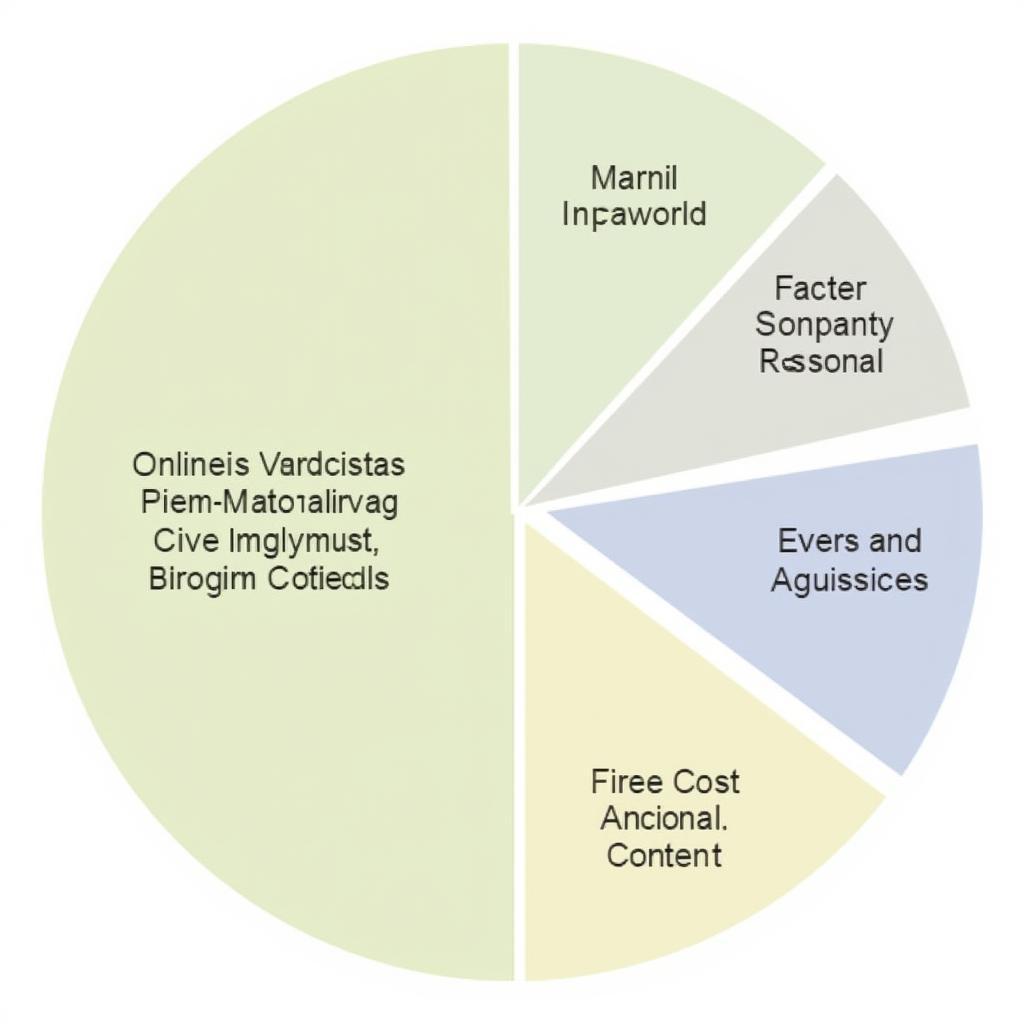What Does Service For Your Car Mean?
When that little light on your dashboard glares “Service Required,” it can feel like your car is speaking a foreign language. Don’t worry, you’re not alone. Understanding what “service for your car” actually means can be confusing. It’s not always as simple as it sounds.
This comprehensive guide will demystify car service for you, explaining everything from basic maintenance to more complex repairs. We’ll break down why regular service is crucial, what’s typically included, and how to find a trustworthy mechanic you can rely on.
Decoding the Service Light: It’s All About Preventative Maintenance
First things first, let’s talk about that service light. While it might seem like an annoying reminder, it’s actually your car’s way of saying, “Hey, let’s keep things running smoothly!” In most modern cars, the service light is connected to a mileage or time-based system. It’s a prompt for routine maintenance, not necessarily an emergency alarm.
Think of it like going to the doctor for a check-up. You wouldn’t wait until you’re seriously ill to seek medical attention, right? The same principle applies to your car. Regular service helps identify minor issues before they escalate into major (and expensive) problems down the road.
What Does Service for Your Car Typically Include?
The specific services your car needs will vary depending on its make, model, year, and your driving habits. However, here are some common procedures included in a standard car service:
-
Oil and Filter Change: This is the cornerstone of car maintenance. Engine oil lubricates moving parts, reduces friction, and helps prevent overheating. Over time, the oil degrades and needs to be replaced.
-
Tire Rotation and Pressure Check: Rotating your tires ensures even wear and tear, extending their lifespan. Proper tire pressure is crucial for fuel efficiency and safe handling.
-
Brake Inspection: Your brakes are arguably the most critical safety feature of your vehicle. A mechanic will inspect the pads, rotors, and calipers for wear and tear.
-
Fluid Top-Off: Your car relies on various fluids, including coolant, brake fluid, power steering fluid, and windshield washer fluid, to function correctly. These fluids should be checked and topped off as needed.
-
Filter Replacements: Beyond the oil filter, your car also has air filters and cabin air filters that need to be replaced periodically. These filters help keep your engine and the air you breathe inside the car clean.
-
Belt and Hose Inspection: Your engine has various belts and hoses that can become cracked or worn over time. Inspecting and replacing them as needed prevents unexpected breakdowns.
 Car Service Checklist
Car Service Checklist
Beyond the Basics: When Your Car Needs More
While routine maintenance covers the essentials, sometimes your car requires more specialized attention. Here are a few examples of when you might need to take your car in for service beyond the basics:
-
Warning Lights: Ignore those dashboard warning lights at your own peril. They are trying to tell you something! A “Check Engine” light could indicate anything from a loose gas cap to a more serious engine problem.
-
Strange Noises: Is your car making a strange grinding, squealing, or knocking sound? Don’t ignore it! Unusual noises are often early warning signs of a problem.
-
Performance Issues: If you notice a decrease in fuel efficiency, sluggish acceleration, or difficulty braking, these are all signs that your car needs attention.
For more specific concerns, check out our articles on:
Finding a Trustworthy Mechanic: It’s Like Choosing the Right Doctor
Just like you wouldn’t trust your health to just any doctor, you shouldn’t entrust your car to just any mechanic. Finding a reliable and trustworthy mechanic is essential for both your peace of mind and your wallet. Here are a few tips:
- Ask for Recommendations: Word of mouth is powerful. Ask friends, family, or colleagues for recommendations.
- Read Online Reviews: Websites and apps like Yelp, Google Reviews, and Angie’s List can provide valuable insights into other customers’ experiences.
- Look for Certifications: ASE-certified technicians have demonstrated their knowledge and skills through rigorous testing.
- Communicate Clearly: Don’t be afraid to ask questions and explain your car’s issues in detail. A good mechanic will listen attentively and provide clear explanations.
 Mechanic Inspecting a Car
Mechanic Inspecting a Car
In Conclusion: Car Service Is an Investment, Not an Expense
Understanding what “service for your car” truly means empowers you to make informed decisions about your vehicle’s maintenance. Remember, regular car service is an investment in your car’s longevity, your safety, and potentially, even your wallet in the long run.

